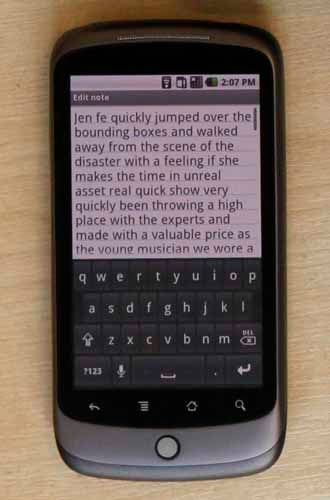Apple sues 'Googlephone' maker over patents

Your support helps us to tell the story
From reproductive rights to climate change to Big Tech, The Independent is on the ground when the story is developing. Whether it's investigating the financials of Elon Musk's pro-Trump PAC or producing our latest documentary, 'The A Word', which shines a light on the American women fighting for reproductive rights, we know how important it is to parse out the facts from the messaging.
At such a critical moment in US history, we need reporters on the ground. Your donation allows us to keep sending journalists to speak to both sides of the story.
The Independent is trusted by Americans across the entire political spectrum. And unlike many other quality news outlets, we choose not to lock Americans out of our reporting and analysis with paywalls. We believe quality journalism should be available to everyone, paid for by those who can afford it.
Your support makes all the difference.Apple said today it filed a lawsuit against HTC Corp, saying that the maker of the Hero phone infringed on 20 Apple patents related to the iPhone's user interface and hardware.
Apple, which popularized touchscreen phones when it launched iPhone in 2007, said it filed the suit at the same time with the U.S. International Trade Commission and the U.S. District Court in Delaware.
The suit also claims HTC, which makes touchscreen phones - many of which are based on Google Inc Android operating system - infringed patents related to the iPhone.
The claim is the latest scrape over ownership of the underlying technology for smartphones - handsets that play video and music, take pictures and send e-mail - which are increasing in popularity among consumers.
For example, Eastman Kodak Co in January filed a complaint with the ITC Apple's iPhone and Research in Motion Ltd's BlackBerry camera phones infringe the photography company's patents.
Nokia, the world's top mobile phone maker, also sued Apple in January for alleged patent violations. The dispute, potentially involving hundreds of millions of dollars in annual royalties, reflects the shifting balance of power in the mobile industry as cellphones morph into handheld computers that can play video games and surf the Web.
Join our commenting forum
Join thought-provoking conversations, follow other Independent readers and see their replies
Comments